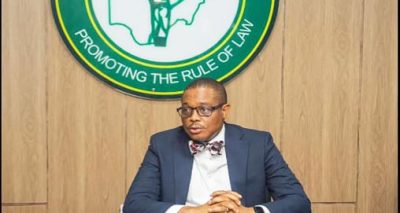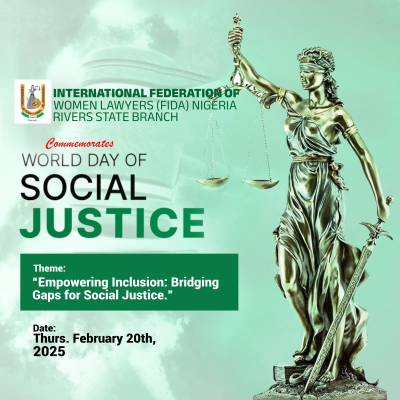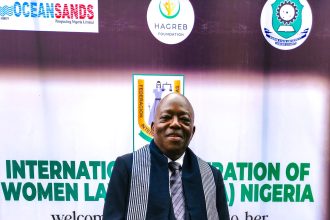NBA President, Mazi Afam Osigwe, SAN, Speaks on Channels Television: Tinubu Should Restore Fubara as Governor, Administrator is Unconstitutional
The Nigerian Bar Association (NBA) and several senior lawyers have weighed in on the controversy surrounding the declaration of a state of emergency in Rivers State. While discussions continue, the role of the National Assembly under Section 305(5) of the Constitution has drawn significant attention. Understanding President Bola Tinubu’s actions in this context is crucial.
From the NBA’s standpoint, a holistic assessment of the president’s decision raises serious constitutional concerns. The first key issue is whether the grounds for declaring a state of emergency in Rivers State were valid at the time of the proclamation. The NBA maintains that the facts presented did not meet the threshold required under Section 305(2) of the Constitution.


Secondly, even if, without conceding, the president had valid grounds for the declaration, the suspension of the governor, deputy governor, and the House of Assembly remains unconstitutional. The NBA insists that such actions lack legal backing and violate the principles of democratic governance.
In light of these concerns, the NBA reaffirms its position that Governor Fubara should be reinstated, and the imposition of an administrator is unconstitutional.
Constitutional Limits on Emergency Powers
“Section 11(4) of the Constitution makes it clear that the declaration of a state of emergency does not grant the National Assembly the power to remove a governor.”
- Chief Emeka J. P. Obegolu, SAN, Moderates Insightful Q&A at 2nd National Conference on Construction and Infrastructure Projects
- AGC EARLY BIRD COUNTDOWN: ONLY 5 DAYS LEFT!
Furthermore, under Section 305(5), a presidential declaration of a state of emergency does not take legal effect until it is ratified by a resolution of the National Assembly. This aligns with Section 11(4), which expressly states that the National Assembly lacks the authority to remove the governor and deputy governor.
The essence of a state of emergency is to empower the government to take extraordinary measures to address critical situations, such as war, breakdown of law and order, or economic crises, as outlined in Section 305(2). This may include temporary abridgment of fundamental rights, government intervention in private property, or actions that would otherwise be unconstitutional.
However, “a state of emergency does not extend to the dismantling of democratic structures within the affected state.” Even in past instances where states of emergency have been declared, sitting governors were not removed, reinforcing the argument that the suspension of Governor Fubara is unconstitutional.

On this basis, the NBA maintains that if the initial declaration of a state of emergency was unconstitutional, its ratification by both chambers of the National Assembly cannot cure the defect. Moreover, the Constitution mandates that ratification must be secured by a two-thirds majority in both chambers.
To ensure compliance with this requirement, the records must reflect the number of lawmakers present, those who voted in favor, against, or abstained. “A voice vote does not satisfy this constitutional requirement,” as it fails to establish whether the necessary threshold was met. Therefore, “the use of a voice vote in both chambers further underscores the unconstitutionality of the entire process.”
Additionally, the failure of the National Assembly to publish a verifiable record of attendance and voting raises further concerns about the legitimacy of the process. If constitutional provisions are to be followed, there must be transparency in legislative procedures, and “any deviation from this process renders the entire action null and void.” Consequently, the so-called ratification by the National Assembly remains constitutionally defective and invalid.

While some argue that emergency laws grant the President broad discretionary powers to act as he deems necessary, the NBA insists that such powers “do not extend to overriding constitutional safeguards or dismantling democratically elected structures.”
The association further stresses that “allowing this precedent to stand would set a dangerous course for Nigeria’s democracy, as it could be exploited to justify the removal of elected officials under questionable circumstances in the future.”
- NBA Gwagwalada Branch to Hold Knowledge-Sharing Webinar on Public Health Law
- Chief Emeka Obegolu, SAN, Pays Advocacy Visit to Delta State Ministry of Justice
- CJN, Legal Experts Laud FG’s Tax Reform Bill at NIALS Founders’ Day Lecture
Presidential Discretion and Constitutional Boundaries
There are those who have examined Section 305(5) and (6) of the Constitution and argued that the President has discretion when he perceives an imminent danger. However, the question remains: how do you define imminent danger? While discretion is granted in some clauses, it is not absolute and must be exercised within constitutional limits.
“The President cannot wake up on the wrong side of his bed and declare a state of emergency, suspend the governor for a year, dissolve the House of Assembly, and appoint a retired general to take over. That would be unconstitutional.” Presidential discretion is not without checks and balances—it must remain within the ambit of the law.
While the declaration of a state of emergency may be valid in certain circumstances, “the suspension of a governor is never justified. Under no circumstance can it be right.” A democratically elected government cannot be arbitrarily dissolved, as no President has the power to suspend another democratically elected officer.
A review of Section 188 of the Constitution clearly outlines the process for the removal of a governor. “Nowhere in the Constitution is the declaration of a state of emergency listed as a ground for a governor to cease holding office.” Therefore, whatever President Tinubu did remains unconstitutional.
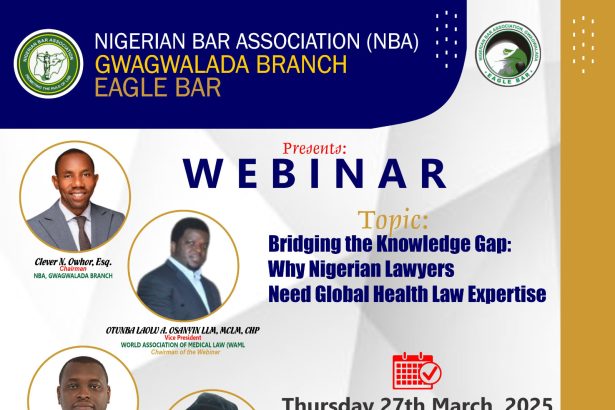
Reversing an Unconstitutional Action
While some argue that nothing can undo the President’s action, that position is flawed. “It is incorrect to say that nothing can shake it. It can be set aside by a court, and the President himself can reverse it.” Even after National Assembly approval, the President has the power to acknowledge an error and correct it.
Concerns have also been raised that those calling the President’s actions undemocratic do not have access to the full security briefings he received.
Some suggest that threats in the Niger Delta justified his decision. However, this argument raises another question: why have similar measures not been taken in states like Benue, Borno, Yobe, Katsina, Zamfara, and Sokoto, where insurgency and terrorism have caused loss of lives?
The Justification for Emergency Powers: A Flawed Premise
An objective evaluation of the President’s address reveals that his justification for the emergency declaration rested on two explosions and a prolonged political crisis between the governor and his political godfather. “If we assess the facts as presented, there is a resounding conclusion: the grounds for the state of emergency did not exist.”
Rather than addressing an imminent security breakdown, the declaration appears to have been driven by unresolved political disputes. “The Rivers problem is being treated with the wrong solution. It’s like using a sledgehammer to cure a headache.” The approach taken is excessive, overreaching, undemocratic, and ultimately unconstitutional.
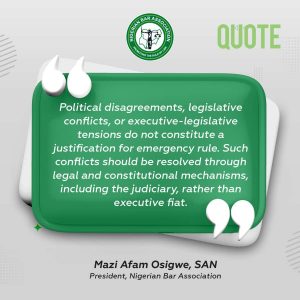
Attorney General’s Defence: Does It Hold?
Attorney General Lateef Fagbemi, SAN, has defended the federal government’s action. However, his arguments were absent from the President’s official address. “He came close to accusing the governor of orchestrating the violence, yet no formal investigation had taken place before the declaration of the state of emergency.”
The two explosions cited as justification occurred within 24 hours of the emergency declaration. Within that short timeframe, no conclusive investigation could have been carried out.
This raises serious concerns: “How sure are we that the intelligence report presented to the President was properly scrutinized and accurate? What if it was manipulated to justify the emergency declaration?”
Given the hasty nature of the decision, its lack of justification, and its unconstitutional foundation, the declaration of a state of emergency in Rivers State remains a deeply flawed and unjustified action.
The Need for a Political Solution
If a governor is treated in a manner not contemplated by the Constitution, it is fair to say he has been unfairly treated. However, the fundamental issue in Rivers State is political, and “only a political solution—not an unconstitutional emergency rule—can resolve it.”
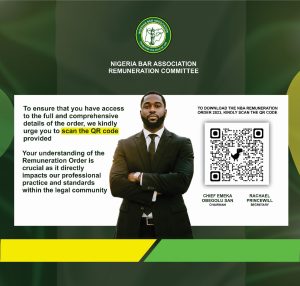
The Supremacy of the Constitution and Legal Precedents
Some have cited other laws to justify the President’s action, arguing that they grant him the necessary powers. However, as i, Mazi Afam Osigwe, SAN, pointed out:
“I would like for people to quote those laws and refer me to them. But let us not forget that Section 1 of the Constitution states clearly that this Constitution shall be supreme and that any law inconsistent with its provisions shall be null and void to the extent of the inconsistency.”
If the Constitution has not expressly given such powers to the President—and in fact, has explicitly precluded the National Assembly from removing a governor—then any law that suggests otherwise is unconstitutional and cannot justify the President’s action.
This action, however, is not entirely new in Nigerian politics. “But I’m sure you’re not referring to Obasanjo, because that’s not a good example.” Instead, a proper constitutional precedent was set by President Goodluck Jonathan, who declared a state of emergency in Borno, Yobe, and Adamawa without dissolving the governance structures.
“That is the correct thing to do because it aligns with the provisions of the Constitution.”
- NBA President Opens Workshop on SOP Validation for Legal Officers and Human Rights Focal Points in NPF
- NBA Pushes Reforms to Address Delays, Injustice, and Security Concerns in Legal Sector
- Chief Emeka Obegolu, SAN, Urges State Attorneys General to Enforce Legal Practitioners’ Remuneration Order 2023
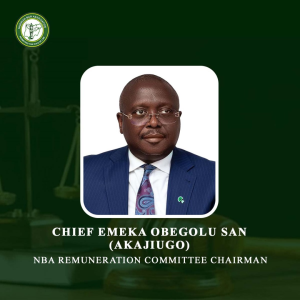
Martial Law vs. Constitutional Governance
There is also a misplaced argument about martial law, which does not apply in this context.
“Martial law is enforced only under military rule. Nigeria is not under military rule, and we must separate sentiments from the law as it stands today—not how it used to be or how it may have been wrongly applied in the past.”
Therefore, any precedent used to justify this action must be examined in the context of the 1999 Constitution, not outdated interpretations from previous regimes. “Obasanjo’s example is a bad one. Jonathan’s example is the correct and constitutional one, which should always be followed.”
The Role of the National Assembly: A Question of Legitimacy
Some have raised concerns about whether the National Assembly properly fulfilled its role in approving the state of emergency. Section 305 of the Constitution provides that:
-
The National Assembly must approve the emergency declaration within two days if in session, or within 10 days if not in session.
-
Approval requires a two-thirds majority in both chambers.
In numerical terms:
-
House of Representatives: 360 members → Two-thirds = 240 votes needed
-
Senate: 109 members → Two-thirds = approximately 73 votes needed
However, concerns have been raised about the legislative process used:
“There are those who put a big question mark on the procedures used. Voice votes should never have been used in a matter of this significance. The Constitution requires an actual count.”
Even if a quorum was met, the voting process should have been physical and recorded:
“Each person must vote physically. Votes must be counted, announced, and recorded—who voted for, who voted against, and who abstained. ‘Ayes have it’ is not sufficient.”
If the Senate did not have at least 73 members voting, or if the House did not reach 240 votes, then the approval process was fundamentally flawed.
“If their rules allow for voice votes in this situation, then those rules would be unconstitutional, because the Constitution itself has already stipulated the specific number required.”
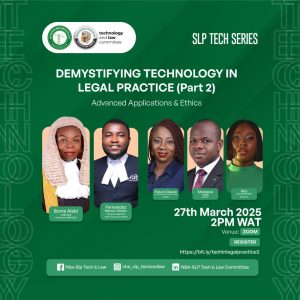
Constitutional Oversight and Legal Consequences
Ultimately, the decision to declare a state of emergency with the suspension of an elected governor is an extreme political action with significant legal consequences.
“The problem here is not just the President’s action—it is also about how the National Assembly played its role in approving it.”
If the process did not follow constitutional requirements, then the entire action could be challenged in court and potentially set aside.
The Constitutional Basis and Legitimacy of National Assembly Actions
On constitutional matters, it is essential to scrutinize the votes and analyze how many members voted in favor of a particular decision. The issue at hand is whether there exists any legislative review mechanism for the actions of the National Assembly. The implication of any constitutional error in the National Assembly’s approval process is that it renders the decision null and void.
Unconstitutionality of the State of Emergency and Suspension
“If the proclamation of a state of emergency is unconstitutional, the suspension is unconstitutional. No matter what ratification you get, it would also be unconstitutional. It would be like placing something on nothing, like hot air.”
The NBA President argues that for a ratification to be valid, the initial act must be constitutionally sound. If the declaration and subsequent suspensions lack a constitutional foundation, any ratification—even if passed with a two-thirds majority—amounts to nothing.
“The basis for all of this is unknown to law. That’s our belief. That’s our belief at the Bar Association.”
Restoration of Governor Siminalayi Fubara
“At the moment, Governor Sim Fubara should be acting as governor. That’s what we expect the President to do—to restore him back to power as he was unconstitutionally removed.”
The NBA President maintains that Governor Fubara’s removal lacks legal backing, and the appointment of a sole administrator is unconstitutional.
- NBA President Afam Osigwe Rejects Justification for Governor Fubara’s Suspension
- NBA President Mazi Afam Osigwe, SAN, Strengthens Bar-Bench Synergy in Courtesy Visit to Federal High Court Chief Judge
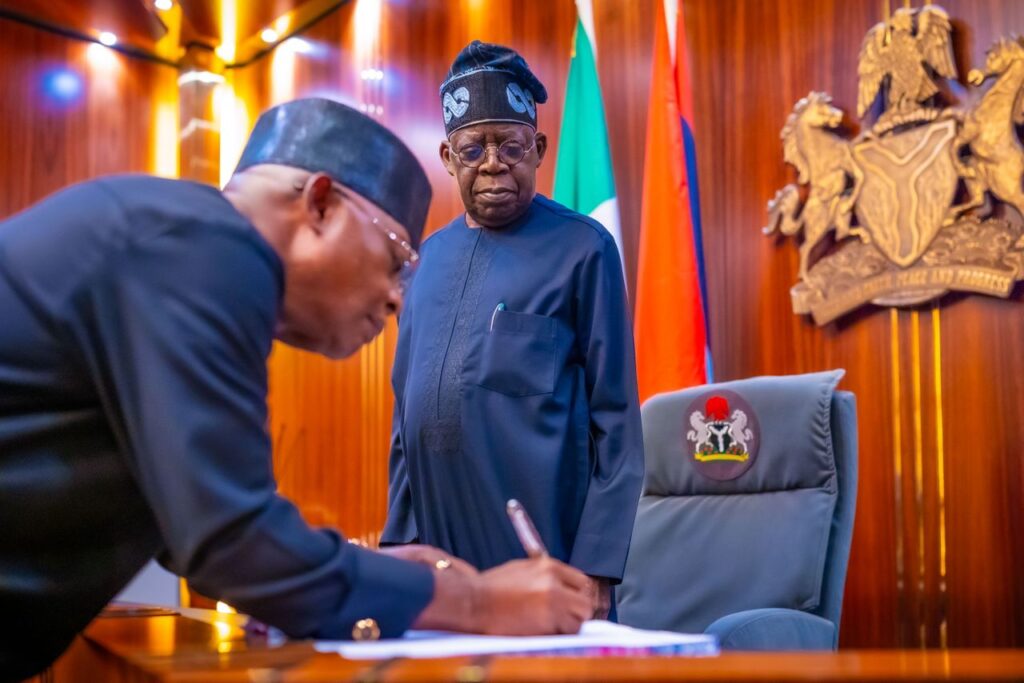
Legality of the Sole Administrator’s Oath of Office
“When I saw him taking an oath of office, I was wondering which oath he was taking because it was an oath not known to the Constitution. The Constitution does not recognize an administrator.”
Since the Nigerian Constitution does not make provisions for a sole administrator, the oath taken by the appointee is legally meaningless.
Professional Conduct and Legal Accountability
“When a member acts as a politician, the rule of professional conduct does not apply or extend to him. That is the current state of our rules.”
The NBA President clarifies that under the current framework, lawyers engaging in political activities are not subject to professional disciplinary measures unless they are acting in their capacity as legal practitioners. However, he acknowledges the need for reforms:
“Maybe an amendment will soon make it so that if you’re a lawyer and your conduct brings the association into disrepute or amounts to infamous conduct, you can be disciplined. But at the moment, you must be acting in your capacity as a legal practitioner for the rules to apply to you.”
This loophole, according to him, is a significant deficiency in the legal framework, as it prevents the NBA from taking action against lawyers whose conduct in politics contradicts the principles of legal ethics.
Lessons from the Crisis
“It shows us that there is a need for us to play greater fidelity to our Constitution, to allow the Constitution to guide us and not to allow politics to undermine the Constitution.”
The crisis underscores the importance of constitutional fidelity and the global scrutiny that Nigeria faces. Adherence to legal principles directly impacts national credibility.
No Legal Gaps—Only a Failure to Adhere to the Law
“Our law in this regard is sufficient. It is the operators that are not abiding by the laws.”
The NBA President dismisses the notion that Nigeria’s laws need further amendments, arguing that the real issue lies in the failure of political actors to comply with existing legal provisions.
Relevant Constitutional Provisions
- Section 11(4) & (5) of the 1999 Constitution: These provisions clarify the powers of the National Assembly in a state of emergency, ensuring that the House of Assembly remains functional even under emergency conditions.
- Section 305: This section outlines the conditions for declaring a state of emergency but does not confer the power to remove a governor or deputy governor.
- Proviso to Section 11:“Provided that nothing in this section shall be construed as conferring on the National Assembly the power to remove the Governor or Deputy Governor of the State from office.”
Interpretation of Section 305 and Legislative Oversight
Clarifying the Constitutional Provisions
“I do not believe Section 305 is unclear. I still maintain that we deliberately refuse to apply it correctly alongside Section 11 and Section 188.”
The Constitution, in Section 305, lays out the conditions under which a state of emergency can be declared. However, the misinterpretation or selective application of these provisions has led to unconstitutional actions. Furthermore, Section 11 and Section 188 provide additional safeguards against arbitrary actions by the National Assembly.
Supreme Court’s Role in Interpretation
“The Supreme Court lost an opportunity in a direct case to make a pronouncement by striking it out on technical grounds.”
Given the controversy surrounding this issue, the courts, particularly the Supreme Court, must provide definitive guidance. While several individuals have already approached the courts, more are likely to follow suit. The judiciary’s responsibility is to resolve constitutional ambiguities and ensure adherence to democratic principles.
The Role of the Supreme Court in Resolving Disputes
Judicial Pronouncement on the Matter
“Whether the court agrees with me or agrees with the President, I don’t know, but let the court make a pronouncement.”
In a federal structure like Nigeria’s, disputes between state and federal governments must be settled through legal interpretation. However, many believe that unless the Supreme Court expressly rules on a matter, it remains open to political manipulation.
The Dariye Case Precedent
The legal technicalities arising from past cases, such as the Dariye case, have shown how crucial the choice of litigants is in such matters. When a case is withdrawn by a party challenging their removal, it hampers the court’s ability to give a substantive ruling. A similar dilemma now exists in Rivers State, as there is no Attorney General to bring the matter before the courts.

Political Solutions and Presidential Intervention
The National Assembly’s Proviso for a Political Solution
“There is a proviso in the amendment to the prayers on the floor of the National Assembly that the President should set up a committee for a political solution.”
This suggests that political dialogue was always a viable solution. Instead of resorting to unconstitutional measures, an inclusive and diplomatic approach could have resolved the crisis amicably.
The President’s Role and Firmness
“That is what should have been done in the first place—a political solution.”
On Whether the President Was Firm Enough
“I don’t think people can ignore the President of the Federation if he had made the kind of effort needed to solve that problem.”
If the President had exercised stronger leadership, the crisis might have been averted. While some argue he has been firm by suspending Governor Fubara, true firmness requires impartiality and enforcement of constitutional order.
“He could have given them marching orders. I think if he had been firmer, he wouldn’t be lamenting.”
Ultimately, ensuring constitutional order requires decisive leadership, not selective enforcement of the law. It is not enough to suspend one party; all stakeholders must be held to the same standard for genuine resolution.
The NBA as the Conscience of Society
The Nigerian Bar Association (NBA) is not just a professional body; it serves as the conscience of society, particularly in matters of governance, rule of law, and justice. As the NBA President, Afam Osigwe, SAN, reiterated, the association has a responsibility to act as a moral compass, pointing out constitutional breaches and governance failures, regardless of whose interests are at stake.
“Like Dante Alighieri was reported to have said, the hottest places in hell are reserved for those who, in times of moral crisis, choose to maintain their neutrality. We have a dog in the fight.”
This assertion underscores the NBA’s obligation to speak out against unconstitutional acts, ensuring governance aligns with legal provisions and democratic principles. The rule of law must be upheld at all times, and silence in the face of violations would be a betrayal of the association’s core principles.
A Society in Decline: The Loss of Confidence in Governance
Osigwe expressed deep concern over the loss of confidence in the three arms of government—the executive, legislature, and judiciary—and by extension, the legal profession. The declining faith in governance is a significant danger to Nigeria’s democracy, as people begin to doubt the ability of institutions to deliver justice and good governance.
“People are losing hope in the ability of the executive to deliver good governance. People are losing confidence in the legislature. People are losing confidence in the judiciary. And also, by extension, in the legal profession.”
This crisis of confidence, if not urgently addressed, could lead to widespread disillusionment with the democratic process, weakening institutions that are meant to safeguard the rights and welfare of citizens.

The Role of Lawyers in Governance
While addressing the role of lawyers in governance and decision-making, the NBA President acknowledged that legal professionals often play a crucial role in shaping governmental actions. Some lawyers, through their advisory roles, have enabled unconstitutional actions, thereby contributing to governance failures.
“It will burn our head in the sand like an ostrich to pretend that we are not [part of the problem]. Because most times, even when some bad decisions are taken, lawyers are the ones who give the legal advice.”
The implication of this statement is that legal practitioners must act with integrity and uphold the tenets of the law, rather than enabling unconstitutional actions for political or financial gains.
Constitutional Provisions and the Path Forward
The NBA President stressed that constitutional clarity already exists on many governance issues, but leaders and institutions often fail to adhere to these provisions. He emphasized the importance of reading Section 305 alongside Section 11 and Section 188 of the Constitution to avoid misinterpretations that can lead to unconstitutional actions.
“We deliberately refuse to apply [the Constitution] the way it is, particularly with Section 11 and Section 188. And the Supreme Court lost the opportunity in a direct case to make a pronouncement by striking out the case on a technical ground.”
While some suggest amending Section 305 to make it more explicit, I, Osigwe argues that the provision is already clear but is often deliberately ignored or misapplied. The Supreme Court has an opportunity to provide a definitive ruling that would resolve existing ambiguities and set a precedent for future cases.
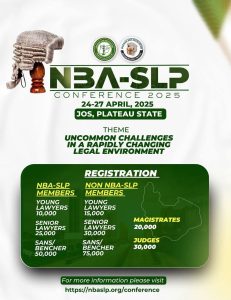
The Way Forward: Restoring Faith in Governance
To address the governance crisis and restore faith in institutions, the NBA President proposed the following steps:
- Judicial Interpretation and Enforcement:
- The courts, particularly the Supreme Court, must make definitive pronouncements on constitutional matters to prevent future misinterpretations.
- Lawyers and litigants must push for judicial clarity on governance-related cases to ensure due process.
- Fidelity to the Constitution:
- Leaders at all levels must adhere strictly to constitutional provisions rather than seeking political shortcuts.
- Political actors must recognize that governance must be driven by legal frameworks rather than partisan interests.
- Stronger NBA Oversight:
- The NBA must continue to hold government accountable through advocacy, litigation, and public statements.
- Legal practitioners who enable unconstitutional governance practices must be held accountable by the association.
- Political Solutions Before Legal Crises:
- The NBA President emphasized that a political solution should have been sought before the Rivers State crisis escalated.
- He argued that the President of Nigeria should have taken firmer steps to resolve the issue politically rather than allowing it to deteriorate into a legal standoff.
“If he had been firmer, he wouldn’t be lamenting. Some of those who say he’s firm on Sim Fubara, he has suspended him. He has to be firm on all the parties to bring a solution.”
- STEP-BY-STEP GUIDE TO APPLYING FOR NBA STAMP AND SEAL ONLINE
- RE: NBA REMUNERATION COMMITTEE’S DIRECTIVES TO BANKS ON IMPLEMENTATION OF LEGAL PRACTITIONERS REMUNERATION ORDER, 2023, IS A WASTE OF TIME; NBA SHOULD DO FIRST THINGS FIRST
Conclusion
The Nigerian Bar Association remains committed to upholding the rule of law and ensuring that governance is conducted within constitutional boundaries. As Afam Osigwe, SAN, rightly pointed out, the NBA’s intervention in political and governance issues is not about taking sides but about ensuring that Nigeria remains a country governed by law.
“We are not part of the crisis, but at the end of the day, we are all part of the casualties of a society that is dysfunctional, that is not run in accordance with the law.”
The NBA will continue to advocate for lawful governance, engage with stakeholders, and use all legal avenues to ensure that Nigeria’s democracy remains strong and resilient. Ultimately, the call is for every citizen, particularly those in leadership, to act in accordance with the Constitution, as that remains the only way to build a just and prosperous nation.



